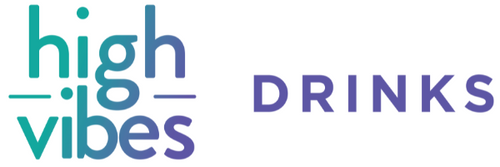October is Mental Health Awareness Month in Australia, so let’s look into the intricate connection between alcohol and mental health. As someone who not only researched this topic but also navigated my own journey through mental health challenges, I find it imperative to shed light on this issue.
Despite it's initial illusion of providing relaxation, alcohol actually depletes the brain's natural coping chemicals, leaving individuals feeling more stressed, anxious, or depressed, thereby perpetuating a dangerous cycle. Furthermore, while alcohol may initially induce sleep, it disrupts the quality of sleep, preventing the deep restorative rest necessary for mental well-being.
A staggering statistic reveals that over half a million Australians will grapple with the dual burden of depression and substance abuse at some point in their lives [1]. For many, alcohol becomes a refuge, a means to unwind or cope with daily stressors and emotional turmoil. Astonishingly, research suggests that between 30% to 50% of individuals dealing with alcohol or drug-related issues concurrently battle mental health conditions [2].
However, it is crucial to understand that alcohol is an ineffective coping mechanism. Classified as a depressant, alcohol is notorious for inducing anxiety and exacerbating stress [3]. It negatively influences our thoughts, emotions, and actions, progressively worsening pre-existing mental health concerns over time.
The intricate relationship between alcohol and mental health becomes evident in two distressing aspects:
- Increased Likelihood of Alcohol Dependence: Individuals with anxiety and depressive disorders are four times more likely to develop alcohol dependence [12].
- Risk of Depression: Alcohol dependence doubles the risk of depression [13].
Additionally, self-medication with alcohol increases the likelihood of dependence [14]. This is concerning, as many individuals, especially during challenging times like lockdowns, resort to alcohol as a coping mechanism.
Another alarming statistic is the association between mental health conditions, alcohol dependence, and increased suicide risk. Individuals experiencing both a mental health condition and alcohol dependence are at significantly greater risk of suicidal behaviour [15].
Even after consumption, alcohol has a sting in its tail – the dreaded 'hangxiety.' Alcohol initially promotes a sense of calmness by stimulating the production of GABA, a calming neurotransmitter. However, as its effects wear off, anxiety, agitation, and worry can surge [17].
Adding to these concerns, alcohol can interfere with common medications prescribed for mental health conditions, including antidepressants [18]. It is advisable for anyone undergoing treatment for a mental health condition to discuss their alcohol consumption with a healthcare professional [19].
There is little evidence to provide safe alcohol consumption guidelines for individuals dealing with depression or anxiety. Alcohol, initially a seemingly harmless coping mechanism, has a complex and potentially deadly relationship with mental health disorders. As someone who has decided to remove alcohol from my life due to its adverse effects on my anxiety, I encourage you to consider the profound implications of alcohol on your mental well-being.
Let's prioritise our mental health, seek healthier coping strategies, and support those in need. Knowledge is the first step toward positive change.
With warmth and understanding,
Elise x
If this blog has raised any issues for you, or you would like some support please reach out to Beyond Blue Get mental health support - Beyond Blue
For more information
The following are a list of resources that we used to write this article, that you may wish to explore:
[1] Beyond Blue https://www.beyondblue.org.au/who-does-it-affect/men/what-causes-anxiety-and-depression-in-men/alcohol-and-drug-use
[2] Western Australian Mental Health Commission. (2015). Better Choices. Better Lives. Western Australian Mental Health, Alcohol and Other Drug Services Plan 2015-2025. Perth, WA: Mental Health Commission.
[3]National Health and Medical Research Council. (2020). Australian Guidelines to reduce health risks from drinking alcohol. Commonwealth of Australia, Canberra.
[4] https://www.ncbi.nlm.nih.gov/pmc/articles/PMC4120286/
[5] National Health and Medical Research Council. (2009). Australian Guidelines to reduce health risks from drinking alcohol. Canberra, ACT: Commonwealth of Australia
[6] Polk, Thad A., The Addictive Brain, The Great Courses, 2015.
[7] Grace, A., This Naked Mind. 2018
[8] Vale, J., Kick the Drink…Easily! 1999
[9] World Health Organization. (2012). Risks to mental health: an overview of vulnerabilities and risk factors. Retrieved from: https://www.who.int/mental_health/mhgap/risks_to_mental_health_EN_27_08_12.pdf
[10] Mental Health Foundation. (2011). Sleep matters. The impact of sleep on health and wellbeing. Retrieved from: https://www.mentalhealth.org.uk/publications/sleep-report
[11] Mental Health Foundation. (2006). Cheers? Understanding the relationship between alcohol and mental health. Retrieved from: https://www.mentalhealth.org.uk/publications/cheers-understanding-relationship-between-alcohol-and-mental-health
[12] Boschloo, L., Vogelzangs, N., Smit, J., can den Brink, W., Veltman, D., Beekman, A., Penninx, B. (2011). Comorbidity and risk indicators for alcohol use disorders among persons with anxiety and/or depressive disorders. Findings from the Netherlands Study of Depression and Anxiety (NESDA). Journal of Affective Disorders, 131, 233-242.
[13] World Health Organization. (2018). Global status report on alcohol and health 2018. Retrieved from: https://apps.who.int/iris/bitstream/handle/10665/274603/9789241565639-eng.pdf
[14] Turner, S., Mota, N., Bolton, J., & Sareen, J. (2018). Self-medication with alcohol or drugs for mood and anxiety disorders: A narrative review of the epidemiological literature. Depression and Anxiety, 35, 851-860.
[15] World Health Organization. (2018). Global status report on alcohol and health 2018. Retrieved from: https://apps.who.int/iris/bitstream/handle/10665/274603/9789241565639-eng.pdf
[16] https://www.thinkmentalhealthwa.com.au/about-mental-health-wellbeing/the-relationship-between-mental-health-alcohol-and-illicit-drugs/
[17] Jane‐Llopis, E. V. A., & Matytsina, I. (2006). Mental health and alcohol, drugs and tobacco: a review of the comorbidity between mental disorders and the use of alcohol, tobacco and illicit drugs. Drug and alcohol review, 25(6), 515-536.
[18] National Health and Medical Research Council. (2020). Australian Guidelines to reduce health risks from drinking alcohol. Commonwealth of Australia, Canberra
[19] National Health and Medical Research Council. (2020). Australian Guidelines to reduce health risks from drinking alcohol. Commonwealth of Australia, Canberra
